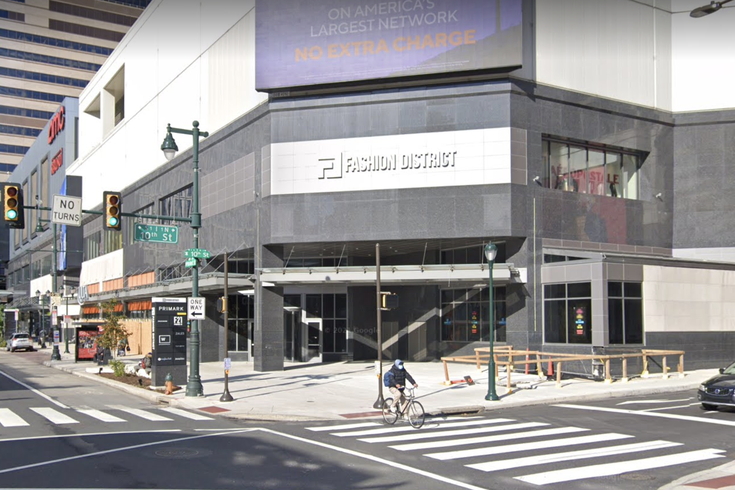
December 11, 2023
 STREET VIEW/GOOGLE MAPS
STREET VIEW/GOOGLE MAPS
PREIT, which owns Fashion District Philadelphia, the Cherry Hill Mall and the Plymouth Meeting Mall, filed for Chapter 11 bankruptcy protection after struggling to repay its debts.
The largest mall operator in Pennsylvania has filed for bankruptcy for the second time since the pandemic.
With a portfolio of mall properties that includes the Cherry Hill Mall and a 50% stake in the Fashion District in Center City, the Pennsylvania Real Estate Investment Trust filed for Chapter 11 bankruptcy protection, the company announced Monday in a release.
As part of its debt restructuring plan, PREIT will relinquish its ownership of the Fashion District mall, according to the Philadelphia Business Journal. Until now, PREIT co-owned the mall with Macerich, another real estate firm.
The company’s bankruptcy and reorganization process — which are still subject to official court approval — are not expected to have an impact on the continued operations of its business, the company said Monday. PREIT also owns several other nearby malls, including the Plymouth Meeting Mall, Exton Square Mall, Willow Grove Park Mall and Moorestown Mall.
PREIT's latest Chapter 11 filing and restructuring plan comes as the struggling company was facing $1.1 billion in debt. That debt was due to be repaid Sunday, a deadline the company’s leadership had previously said it would be unable to meet. By filing for bankruptcy protection and undergoing a reorganization, the company plans to reduce its debt burden by about $880 million. PREIT executives expect the company to emerge from bankruptcy by February.
The company previously filed for Chapter 11 protection in 2020, just a year after it opened the $400 million Fashion District as a more upscale reimagining of the former Gallery mall at 9th and Market streets. It also was, notably, the year that the COVID-19 pandemic dramatically curtailed in-person shopping and most other aspects of modern life.
Between February and April of 2020, Center City saw a 74% decrease in foot traffic as people complied with stay-at-home orders and stayed away from office buildings and businesses, according to data from the Center City District. By June 2020, retail occupancy rates in Center City had dropped to 55% as businesses struggled to stay open.
More than three years after the pandemic began, Center City is on the rebound. As of October 2023, foot traffic in Center City had returned to 83% of what it was in 2019, according to the most recent data from the Center City District. Overall, Center City's post-COVID return to normal has outpaced that of most other major U.S. cities, according to an October CCD report.
Still, as healthy and promising as the metrics behind Center City's rebound may look, the recovery hasn't happened quickly enough for some businesses — like shared office coworking startup WeWork, which reduced its footprint in Philadelphia and filed for bankruptcy protection. For others, like the businesses inside the Fashion District mall that face an uncertain future amid plans to potentially build a new 76ers arena, only time will tell.